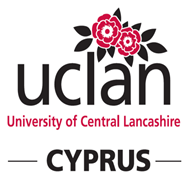
CO4755
Mobile Application Development
Important!
Please note that this page is informational, and does not replace the official Module Information Pack (MIP). All students attending this module must carefully read the MIP which can be accessed online via Blackboard.
Logistics
| Module leader: | Nearchos Paspallis |
| When and where: | Refer to the timetable (requires login) |
| Syllabus: | Refer to the Blackboard for the syllabus, assignments, etc (requires login) |
Module content
Mobile computing provides access to information and processing where and when the user requires. Improvements in wireless networks, hardware technology, and protocols for the provision of distributed services have rapidly increased the capability and popularity of personal ICT (smart phones and tablets, wearable computing devices, etc.). Furthermore, the advancement of sensing capabilities in modern smartphone devices has fuelled the fusion of context-aware features in many popular apps. The enabling technologies provide both technical and user-interface challenges for the software developer. This module explores the underlying technology and extends development skills to produce, release, and maintain software for mobile and distributed environments.
We cover the following aspects:
- Human Computer Interaction in the era of mobile and pervasive computing;
- Mobile Application Development Lifecycle;
- Mobile Platform Architecture;
- Networks and Security;
- Advanced Topics in Mobile Applications.
Learning Outcomes
By the end of the course, students are expected to:
- Develop software for mobile applications using a modern development environment;
- Design an appropriate user interface for a mobile application;
- Recommend solutions to the problems arising during the full lifecycle of mobile application development;
- Use relevant literature to investigate and explain hardware and software technology supporting mobile computing technology;
- Critically evaluate solutions to technical problems relating to mobile computing systems.
Resources
Brian Fling, Mobile Design and Development: Practical Concepts and Techniques for Creating Mobile Sites and Web Apps, O'Reilly Media; 1 edition (August 31, 2009)
Bill Phillips, Brian Hardy, Android Programming: The Big Nerd Ranch Guide, Big Nerd Ranch Guides; 1 edition (April 7, 2013)
Josh Clark, Tapworthy: Designing Great iPhone Apps, O'Reilly Media; 1 edition (June 25, 2010)
Frank Adelstein, Sandeep K.S. Gupta, Golden G. Richard III, Loren Schwiebert, Fundamentals of Mobile and Pervasive Computing, McGraw-Hill Professional; 1 edition (November 30, 2004)
Mahadev Satyanarayanan, Pervasive Computing: Vision and Challenges, IEEE Personal Communications, Vol. 8, No. 4 (2001)
Oliver Amft, Paul Lukowicz, From Backpacks to Smartphones: Past, Present, and Future of Wearable Computers, IEEE Pervasive Computing, Vol. 8, No. 3 (Jul.-Sept. 2009)
Michael A. Cusumano, Platforms and services: understanding the resurgence of Apple, Communications of the ACM, Vo. 53, No. 10 (October 2010)
Proceedings of relevant conferences such as MobileHCI (www.mobilehci.org), MobiSys (www.sigmobile.org/mobisys) and MobilWare (mobilware.org).
Many more e-books on Android development are available through UCLan Cyprus’ library.
The official site for Android Developers is a great source for both beginners and experienced ANDROID developers (developer.android.com/develop)
Additional material (including lecture slides and hand-outs) will be available in Blackboard
Collaboration
Students are encouraged to study and learn in groups. However, individual assignments should be the result of their personal effort (unless group work is explicitly asked).
As a principle, you should follow Gilligan's Island Rule: you can discuss assignments with your classmates, but you should not take any notes (electronic or not) from these meetings, in order to be able to fulfil your assignment independently using your own undestanding of the lectures and the group meetings.
General rules
In addition to the general rules of the University, you should also respect the following rules:
- Attending the lectures is mandatory.
- Students should respect the right of their classmates to attend without disruptions or unnecessary interruptions and thus you should not arrive late (or leave early) unless absolutely necessary.
- You are asked to respect the intellectual copyright legislation, concerning copying and using software and books (in electronic or print form).
- Extensions to assignments will not be granted. In exceptional situations, you should consult the Year-1 Tutor.
- Plagiarism is a serious offense. The University uses plagiarism detection software for all assignments and offenders are subject to the University's rules concerning plagiarism. More details about what plagiarism is (and is not) can be found in your MIP, which is available on Blackboard.